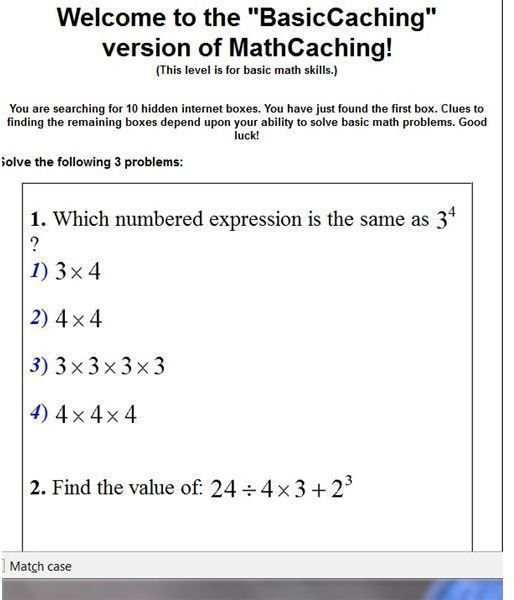Classroom Teaching Tools: Geocaching and Algebra
Using Geocaching in the Classroom
GPS coordinates involve plenty of mathematical equations, especially when using longitude and latitude coordinates. You still may wonder about geocaching and algebra. How do these two things work together, and how are they connected?
Geocaching is a fun activity that combines hiking and hunting for hidden treasure. Generally, geocaches are hidden within woods off or on trails. You input the GPS coordinates for the cache, and then go searching for it. The GPS unit will get you to within a few hundred feet of the cache. From there, you need to look around the area for the cache.
Caches are usually random objects like notepads and compasses. If you do go geocaching, always bring something for the cache if you plan to take anything out of it.
Finding Caches Using Math
Teachers are currently using geocaching as a way of teaching math, especially algebra. Teachers give students math equations to come up with longitude and latitude degrees, including the tenths, hundredths and thousandths of minute information.
Students then use this information to find the GPS coordinates of a hidden cache either in the woods or near their school. The goal of these lessons is to provide a fun way of learning algebra. Students are more likely to learn a difficult subject like this if they are exposed to it in a fun environment.
This also teaches teamwork since students must usually work together in groups. Generally, a group of students is given a GPS unit. Once they figure out the longitude and latitude, they can punch this information into the GPS unit to find the cache.
Just like regular geocaching, however, the unit will only get students so close to the cache. From there, they must do a little bit of treasure hunting on their own, searching around the area. Finally, they may have to do a little digging or simply searching in the bushes. If you are dealing with especially young children, teachers may want to leave the caches visible.
For students, the cache rewards are usually pretty simple, i.e. stuff they can use in the classroom (pencils, crayons or notepads) or fun toys.
Appropriate for Everyone
Math geocaching problems are appropriate for nearly all age groups of students. It gets the students thinking about algebra as just more than pencil and paper problems. They can see real world applications for it.
Geocaching is also appropriate for adult refresher courses. Many hikers already go geocaching so this would be a very easy way to teach the subject.
Online Geocaching
If a school is located in a dangerous or primarily urban area, teachers and students may not be able to go outside to find caches safely. You don’t have to give up your dream of teaching algebra via geocaching if that is the case. Instead, you can use websites, which allows you to search online for caches.
An example of a site like this is MathBits.com, which offers the MathCaching series of activities. This activity allows you to search for hidden boxes online. You must decipher math problems to find the clues that will lead you to these boxes. You must solve the problems correctly to get the clues.
Certain MathBits.com geocaching games are free, and teachers or parents have the answer key. All of the math problems are in large print. This allows you to project them on a screen. To start using these games, follow the below steps:
- Download the worksheet for the topic that you plan on covering. Free geocaching games include the following:
- Basic Math
- Algebra
- Algebra 2
- Geometry
- Trigonometry
- Pre-calculus
- Calculus
- TI-84+ Caching.
- Go to the Start the Game section, and click on the URL for the game.
- Figure out the math problem. Your answers will give you directions for a hidden Internet box.
- Input the address of the next hidden box into your browser. A part of the URL for box will be missing. This is where you add the solution of the math problem.
Find all the boxes, and get a certificate.
Getting a GPS Unit
If you are a teacher who is interested in combining geocaching and algebra in your classroom, you can buy one or two units for your classroom if you have a generous school system. Most teachers do not have this luxury. If you don’t have any extra money left over in your budget, consider requesting a grant from a non-profit organization or charity. You can also hold some type of fundraiser to raise money for the venture.
You should also consider contacting one of the major manufacturers directly for assistance. All manufacturers do a certain amount of charity work, especially for public relations purpose. The company may donate a set of GPS units for your classroom or school.
References
Screenshots provided by the writer
